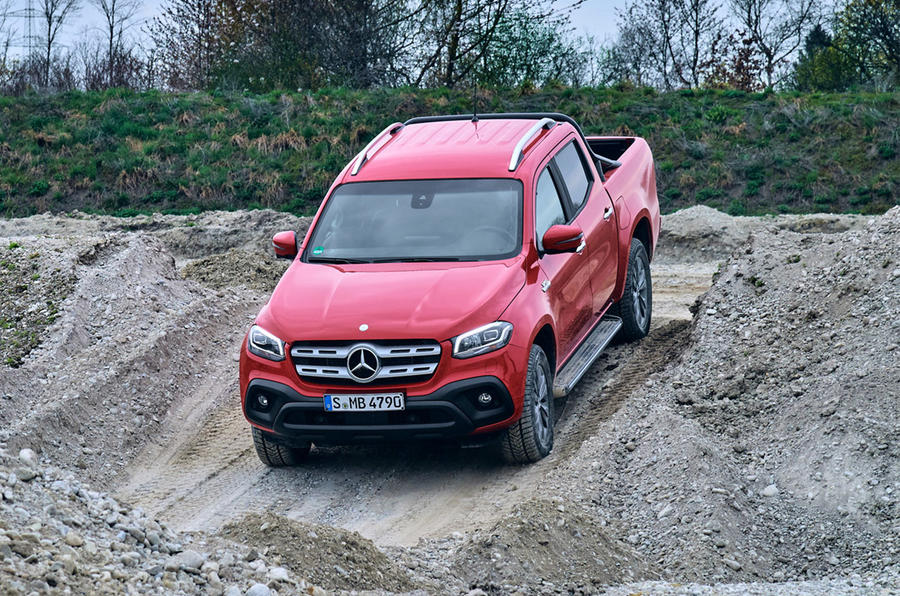This is meant to be an era of cost-cutting via cost-sharing in automotive, yet the once seemingly far-sighted alliance between Renault-Nissan-Mitsubishi and Mercedes-Benz, agreed back in 2010, appears to be withering before our eyes.
Earlier this month, Mercedes announced it was moving production of the Mercedes-Benz A-Class out of the Mexican manufacturing plant it shared with Nissan sibling brand Infiniti back to Germany. In May, it halted production of the Nissan Navara-based X-Class pick-up truck in Spain. Prior to that, Mercedes’ part-sale of Smart to Geely made a next-generation collaboration with Renault, on whose Twingo its cars are based, highly unlikely. The Infiniti Q30, based on the A-Class, ceased production in the UK in 2019. The list goes on.
At launch, the partnership was headlined as having the potential to save £1.6 billion between the firms across five years, but less than a decade later, you can’t help but look at its slow demise and wonder if the extended death throes are the result simply of a need to lower the costs as each party finds the most practical path to extracting itself, hoping all the while that everyone will look the other way at what ultimately is a fairly humiliating situation.
What’s less easy to fathom is whether the now seemingly inevitable split is the exception or the rule for future alliances. After all, the automotive world is littered with examples of failed alliances, usually highly complex in their failings but often stripped back to reveal an inability for global megabrands – or at least the oft-changing leadership of them – to accept either equality or subservience in the long term.
To that end at least, Renault-Nissan-Mitsubishi and Mercedes offer some insight. For a period, the ‘Dieter and Carlos show’ was an annual tribute to the power of bonhomie, as Messrs Zetsche and Ghosn sat down in front of the world’s press to outline their next steps together. Once-a-year handshakes and grins may not have made the world turn, but the strength of the personalities did appear to be enough to provide a sticking plaster over the relationship even as the long-term viability of some of the projects started to look shaky. As both men exited stage left, one retiring into the sunset and one retiring, briefly, to a Japanese prison cell on charges he denies, so too the cracks appeared. Coincidence or consequence?
Most will argue a divorce was inevitable, a result of changing ambitions and over-ambition, Mercedes beset with too-small profits and too-big future investment requirements, Nissan and Renault out of love and in turmoil, their share prices tumbling as much as a result of their own bickering as any weaknesses in their respective plans. But in a period that, we’re reminded daily, is unprecedented in its challenges, you also have to wonder – and worry – why automotive collaboration usually ends in tears.
READ MORE
Mercedes-Benz to end production of X-Class pick-up in May
Mercedes: Smart's future is bright thanks to Geely deal
Who is Carlos Ghosn and why is this saga going to run and run?





Join the debate
Add your comment
Goodbye Nissan?
I can still see the purpose of collaboration between Mercedes and Renault as both need partnerships for products for which on their own they have insufficient volume to achieve the necessary economies of scale. Mercedes need to source engines for the A Class and both probably need to rebadge each other's light commercial vehicles. Sadly I think the culture at Nissan makes them very difficult to partner. The whole Ghosn debacle makes it very clear that the Japanese didn't want anyone diluting their control. I suspect they will fall back into their old difficulties and will be have to rescued again as they are making themselves even more isolated. You have to wonder how committed they will be to the European market without a proper partnership with Renault.
With Geely now being a
With Geely now being a significant investor in MB, surely the latter's future and that of its subsidiaries lies in cooperation with Geely, including Volvo, Lotus, Polestar, Proton and LEVC as well as BAIC. This leaves Renault to repair its own other flakey alliances.